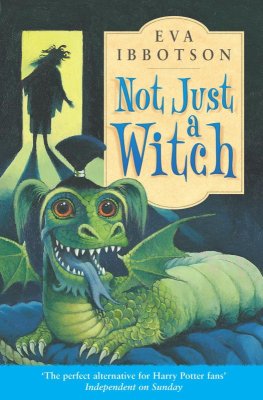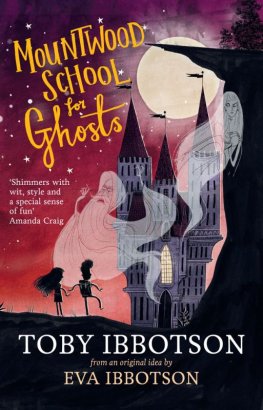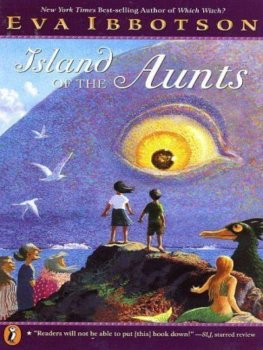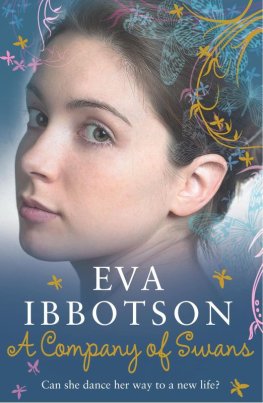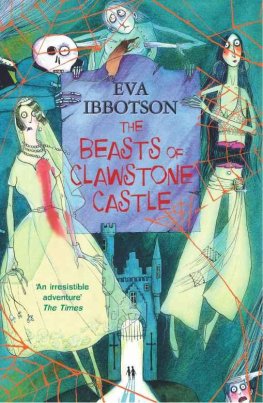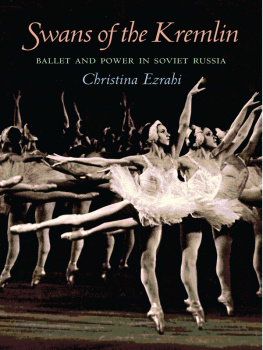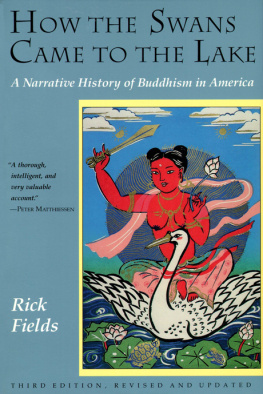A Swans - Eva Ibbotson
Here you can read online A Swans - Eva Ibbotson full text of the book (entire story) in english for free. Download pdf and epub, get meaning, cover and reviews about this ebook. year: 0101, genre: History. Description of the work, (preface) as well as reviews are available. Best literature library LitArk.com created for fans of good reading and offers a wide selection of genres:
Romance novel
Science fiction
Adventure
Detective
Science
History
Home and family
Prose
Art
Politics
Computer
Non-fiction
Religion
Business
Children
Humor
Choose a favorite category and find really read worthwhile books. Enjoy immersion in the world of imagination, feel the emotions of the characters or learn something new for yourself, make an fascinating discovery.

Eva Ibbotson: summary, description and annotation
We offer to read an annotation, description, summary or preface (depends on what the author of the book "Eva Ibbotson" wrote himself). If you haven't found the necessary information about the book — write in the comments, we will try to find it.
Eva Ibbotson — read online for free the complete book (whole text) full work
Below is the text of the book, divided by pages. System saving the place of the last page read, allows you to conveniently read the book "Eva Ibbotson" online for free, without having to search again every time where you left off. Put a bookmark, and you can go to the page where you finished reading at any time.
Font size:
Interval:
Bookmark:
A Company of Swans
By
Eva Ibbotson
Contents
Chapter One
Chapter Two
Chapter Three
Chapter Four
Chapter Five
Chapter Six
Chapter Seven
Chapter Eight
Chapter Nine
Chapter Ten
Chapter Eleven
Chapter Twelve
Chapter Thirteen
Chapter Fourteen
Chapter Fifteen
Chapter Sixteen
Chapter Seventeen
Chapter Eighteen
Epilogue
AVON BOOKS
A division of
The Hearst Corporation
1350 Avenue of the Americas
New York, New York 10019
Copyright 1985 by Eva Ibbotson
Published by arrangement with St. Martins Press, Inc.
Library of Congress Catalog Card Number: 85-1710
ISBN: 0-380-71410-8
First Avon Books Printing: February 1992
AVON TRADEMARK REG. U.S. PAT. OFF. AND IN OTHER COUNTRIES, MARCA REGISTRADA, HECHO EN U.S.A.
Printed in the U.S.A.
For Patricia Veryan
Chapter One



There was no lovelier view in England, Harriet knew this. To her right, the soaring towers of Kings College Chapel and the immaculate lawns sloping down to the rivers edge; to her left, the blue and gold of the scillas and daffodils splashed in rich abundance between the trees of the Fellows Gardens. Yet as she leaned over the stone parapet of the bridge on which she stood, her face was pensive and her feetand this was unusual in the daughter of a professor of classics in the year 1912were folded in the fifth position.
She was a thin girl, brown-haired and brown-eyed, whose gravity and gentleness could not always conceal her questing spirit and eagerness for life. Sensibly dressed in a blue caped coat and tarn oshanter bought to last, a leather music case propped against the wall beside her, she was a familiar figure to the passers-by: to ancient Dr. Ferguson, tottering across the willow-fringed bridge in inner pursuit of an errant Indo-Germanic verb; to a gardener trimming the edges of the grass, who raised his cap to her. Professor Mortons clever daughter; Miss Mortons biddable niece. To grow up in Cambridge was to be fortunate indeed. To be able to look at this marvelous city each day was a blessing of which one should never tire. Harriet, crumbling bread into the water for the worlds most blase ducks, had told herself this again and again. But it is not cities which make the destinies of eighteen-year-old girls, it is peopleand as she gazed at the lazy, muddy river and thought of her future and her home, her eyes held an expression which would have better become a little gutter starvelinga bleak and shipwrecked look devoid of happiness and hope.
Professor Morton was already in his forties when, at a reading party in Switzerland, he met an English girl working as a governess to the children of a Swiss industrialist living in an ochre-colored castle across the lake.
Sophie Brent was enchanting, with big brown eyes, soft dark-gold hair and a beguiling chuckle. She was an orphan, poor and unprotected as only a governess can be and deeply impressed by the attentions of the serious, stern Professor with his firm opinions and cultured voice.
They married and returned to the tall, gray house in Cambridge where the Professors elder sister Louisaa gaunt and iron-haired spinster who kept house for himwelcomed with outer resignation and inner chagrin the foolish, useless girl who had ensnared her brother.
Number 37 Scroope Terrace, off the Trumpington Road, was a house where Waste Not Want Not was the motto. Louisa Morton counted the fish-knives on Thursdays and the silver plate on Saturdays and kept in her bedroom a box labeled String too short to tie. Though the Professor had a substantial private income in addition to his salary, she had been heard to upbraid the cook for the unbridled expenditure of three-farthings on an ounce of parsley. Invitations to dine with the Mortons were among the most dreaded events in the University calendar.
In this cold, dark house filled with the smell of boiled fish and the sniffs of depressed housemaids, the Professors pretty young wife wilted and drooped. Sophie saw little of her husband for the Professor wined, dined and had his being in the comfort of his College, returning to Scroope Terrace only to sleep. Though presumably acquainted with bright-eyed Nausicaa laughing with her maidens on an Aegean shore, with marvelous Sappho and her love-loosened limbsand indeed with all those gallant girls who had welcomed Jupiter in the guise of Swan or Bull or Shower of Goldthe Merlin Professor of Classical Studies was a dry and narrow-minded pedant. His published work consisted mainly of splenetic articles in which he vilified those who dared to disagree with his view that Odes VI and VII in the epinikia of Bacchylides had been incorrectly separated, and his lectures (from which all women were rigorously excluded) were confidently regarded as being not only the most boring in the University, but the most boring in the world. .
The Professors passion for his young wife soon cooled. It was clear that Sophie would be no use to him in his career. Though constantly instructed by himself and Louisa, she seemed quite unable to learn the most basic rules of academic protocol. Again and again her patient husband caught her out in the most appalling lapses: attempting to seat the wife of the Professor of Divinity below the wife of the Professor of Mathematics and once, in a tea-shop, smiling at a young lecturer who was wearing shorts. When he was passed over for the Mastership of his College it was Sophie he blamed and Louisawho had never really relinquished the reins of the householdnow gathered them even more firmly into her bony and frugal hands.
It was into this house that Harriet was born.
Babies, as everyone who cares for them knows, come trailing their own particular essence. There are grave, contemplative babies still patiently solving some equation of Euclidean geometry begun in another world, scrawny high-powered babies apparently shot into life without the slightest need to eat or sleep, and placid agricultural babies whose only concern is to thrive.
But sometimes just sometimes, there are babies who appear to have swallowed some small private sun, rosy and endlessly obliging babies who explode into laughter long before ones hand has actually touched their stomachslaughter which has less to do with being tickled than with sharing and being togetherand love.
Such a baby was Harriet Jane Morton in the first two years of her life: a baby who offered you her starfish of a foot, her slobbered rusk a cornucopial life-affirmer from the start.
Then Sophie Morton, whose passion the child had been, caught a chill which turned to pneumonia and died. Two weeks later, Louisa dismissed the country girl who had been Harriets nurse.
Within months the plump, rosy baby became a serious, bird-thin and almost silent little girl. As though reflecting a scarcely comprehended grief, her hair darkened, her hazel eyes lost their green and golden lights and settled to a solemn brown. It seemed as if the very skin and bone and muscle of this bewildered little being had changed into a minor key.
Soon, too soon, she taught herself to read and vanished for long hours into her attic with a book, to be discovered by one of the servants shivering with a cold she had been too absorbed to notice. If she spoke now, it was to her invisible playmatea twin brother, fleet-footed and strongor to the small creatures she befriended in that loveless house: the sparrows which settled on her windowsill; a squirrel she had called down from the one tree in the raked gravel rectangle which was the Mortons garden.
Next pageFont size:
Interval:
Bookmark:
Similar books «Eva Ibbotson»
Look at similar books to Eva Ibbotson. We have selected literature similar in name and meaning in the hope of providing readers with more options to find new, interesting, not yet read works.
Discussion, reviews of the book Eva Ibbotson and just readers' own opinions. Leave your comments, write what you think about the work, its meaning or the main characters. Specify what exactly you liked and what you didn't like, and why you think so.


